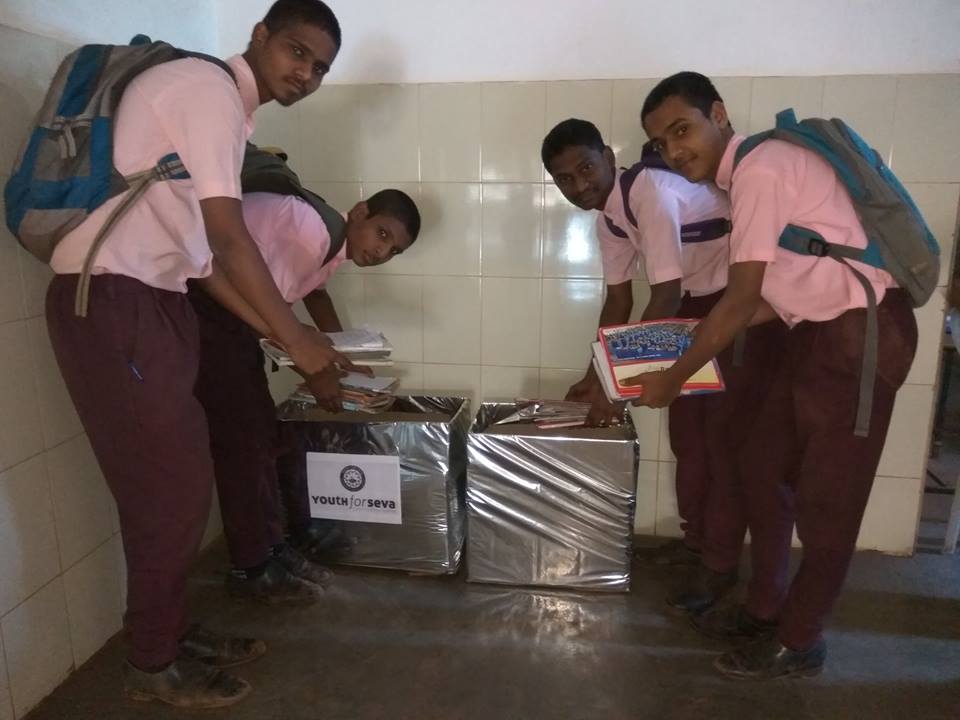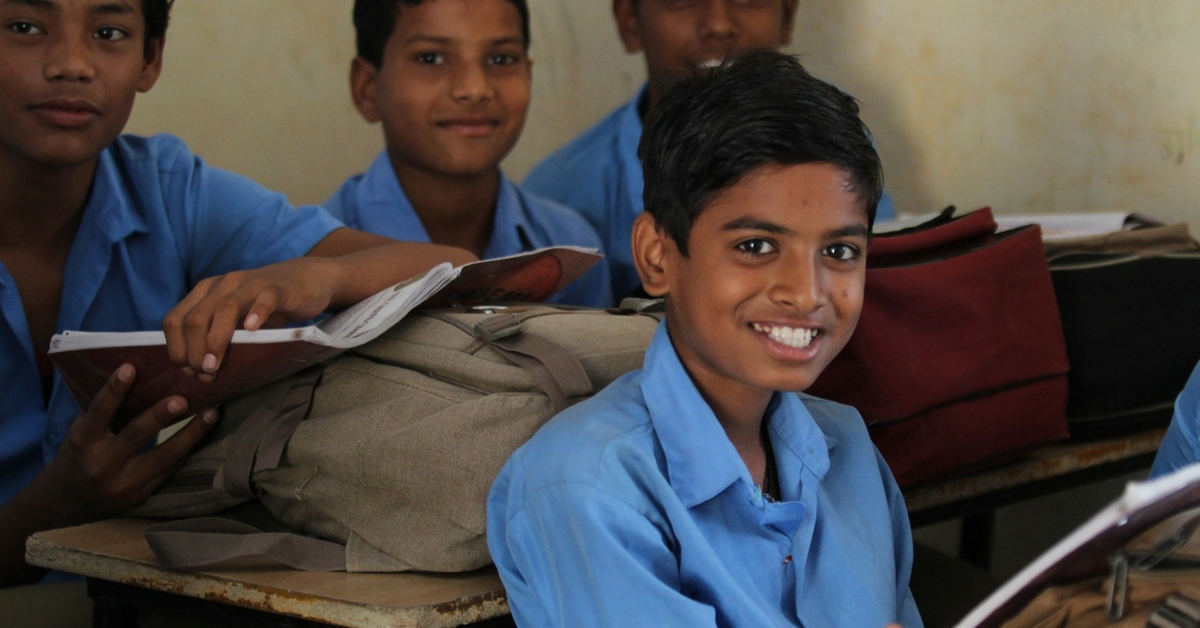Growing up, we have written—and doodled—our way through many a school notebook. What remained constant was the number of pages that remained empty at the end of the school year. Conscious parents encouraged us to reuse the remaining pages, but to be fair, the appeal of new stationery was hard to resist. A group of Bengaluru-based volunteers working for the empowerment of underprivileged communities has decided to put together a fruitful plan for these blank pages.
The result of their effort is Give Paper Back, an initiative that creates notebooks for rural students from the blank pages of used notebooks.

The project is an initiative of Youth for Seva, a nationwide volunteering movement founded in 2007 that encourages the youth to take up community development initiatives. The organisation’s activities are diverse, ranging from activities in old-age homes to healthcare for vulnerable sections of society. Prema KS, one of the volunteers on the Give Paper Back initiative, says that the recycling project emerged from their activities with schoolchildren.
“Working with communities from various economic backgrounds, we have seen the difficulties faced by children in rural areas. The project is focused on village schools, because their students remain a little neglected. We have been aiding school students with school kits, and this year we thought why not also include recycled notebooks in the package.”
The project involves collecting used notebooks from schools, apartment buildings and communities. The emphasis is on standard-issue notebooks used by school children that can be rebound seamlessly. The notebooks are dropped in labelled cartons placed in educational institutions and communities, and collected by volunteers.
You might also like: How a Group of BITS Pilani Graduates Is Restoring a up Village School to Its Former Glory
The blank pages are taken from notebooks and journals, and are rebound to make next-to-new notebooks for children studying in rural schools. The volunteers also collect unused notebooks and journals.
Give Paper Back started the initiative in city schools, and its popularity has led to the project spreading in other areas too.
The project began in schools, as the volunteers hoped to educate urban children on the value of reusing paper. There are two eco-friendly measures to consider—on one hand, recycling notebooks can contribute to saving the vast quantities of water required to produce paper. Simultaneously, it can also minimise—at least in some quantities—the number of trees being cut for the purpose of manufacturing writing paper.
“We also want to tell children in city schools that students in rural areas are not very different from them,” says Prema. “But rural students don’t have many of the resources available to children in cities. We hope to show them the reality and encourage them to act on it. Many people have shown interest and have taken it upon themselves to collect notebooks from their apartment buildings too.”
Using the project as a pilot, the volunteers are currently focused on reaching out to as many communities and schools as possible. Aiming for success, they hope to use their experience from the first leg of the project to improve their next attempts.
In addition to Bengaluru, the project is also being undertaken in other parts of Karnataka, including Hubbali, Belgavi, Mysuru, Chikkamagaluru and Sirsi.
“This is the first time we have tried something like this, and the response has been great,” says Prema. She credits it to the network of volunteers who have stepped forward to do their part, working weekends (most of them have regular day jobs) and tirelessly approaching schools to participate in the project.
You might also like: This Educational Startup Aims to Bring Cutting-Edge 3D Printing to Every School in India
The biggest challenge for the project has been outreach and logistics. While many have shown interest in the project, Prema admits that collecting from individuals would be far too difficult. Instead, targeting building complexes or institutions allows them to interact with large groups at once and also identify community leaders who can help facilitate the project.
“It is a Herculean task,” says Prema, but adds that the number of cartons filled with notebooks waiting for refurbishment testifies that the project has great support. “People want to do something to help, but they need direction on what they can do. We hope that we can offer our support and help bring about societal change.”
For more information on Youth for Seva, head to their website. To contact Prema and other YFS volunteers, click here.
Featured image: Pixabay
Like this story? Or have something to share? Write to us: contact@thebetterindia.com, or connect with us on Facebook and Twitter.
NEW: Click here to get positive news on WhatsApp!
If you found our stories insightful, informative, or even just enjoyable, we invite you to consider making a voluntary payment to support the work we do at The Better India. Your contribution helps us continue producing quality content that educates, inspires, and drives positive change.
Choose one of the payment options below for your contribution-
By paying for the stories you value, you directly contribute to sustaining our efforts focused on making a difference in the world. Together, let's ensure that impactful stories continue to be told and shared, enriching lives and communities alike.
Thank you for your support. Here are some frequently asked questions you might find helpful to know why you are contributing?

